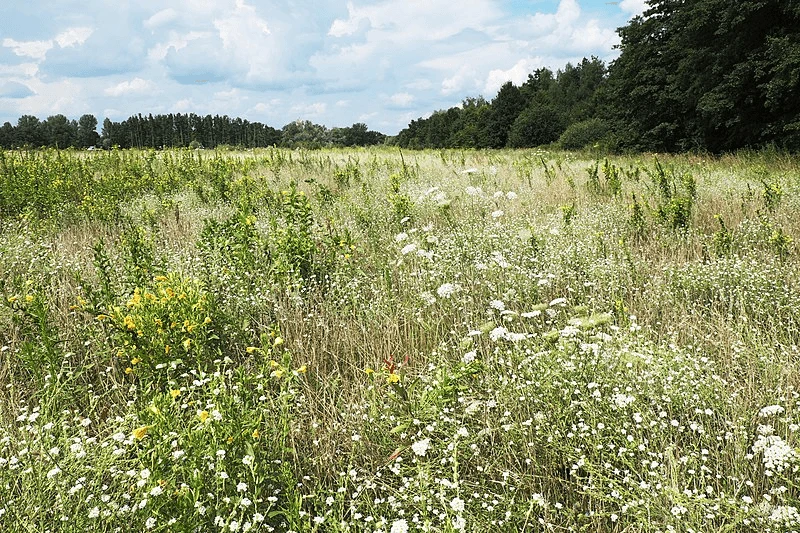Viewpoint: Do you really want a sustainable food system revolution? Let’s expand the definition of regenerative ag to include all the tools in the farmer’s toolbox
Viewpoint: Do you really want a sustainable food system revolution? Let’s expand the definition of regenerative ag to include all the tools in the farmer’s toolbox


We need to find futureproof innovative solutions to these pressing and interconnected challenges. This requires an agile understanding of the complex systems that underpin agriculture, including soil health, crop management, and pest control.
I recently attended the St. Gallen Symposium in Switzerland, an annual gathering of students, young leaders, and today’s decision-makers from around the world that provides a unique opportunity for these stakeholders to come together. I was amazed by this young generation providing key insights into latest technologies, their societal acceptance and consumer expectations in sustainable farming.
Precision agriculture technologies like GPS mapping and drone technology can help farmers optimize crop yields and reduce waste, by providing detailed information about soil health, water usage, and crop growth.
Sensors and digital maps for crop and animal disease management are becoming available especially in emerging economies with a high share of young people in their population driving this change. Similarly, biotechnology can help to develop more resilient crops that can withstand the challenges of climate change, such as drought or disease.
Sustainable farming practices may include reducing the use of pesticides and synthetic fertilizers, practicing crop rotation, and using cover crops to improve soil health. These practices not only help to reduce the environmental impact of farming but also can lead to increased productivity and profitability in the long term.
A shift to regenerative agricultural practices is being driven by some farming communities and industries to help meet the challenges. These are holistic approaches to farming that seek to improve soil health, increase biodiversity, and enhance ecosystem services. The use of cover crops, crop rotations, reduced tillage, and other techniques restore and regenerate natural resources while producing healthy and nutritious food. It is a win win win for the grower, the consumer, and the environment. So why isn’t everyone doing this, especially when the need is so urgent? How can we encourage faster adoption of these practices?
We must all work together to ‘agcelerate’ innovation. Policy makers in the EU can accelerate innovation in and take up of more sustainable agricultural practices that enable farmers to be more profitable, productive, and sustainable by implementing policies that incentivize sustainable practices, supporting research and development, providing education and training, and collaborating with stakeholders to develop innovative solutions.
The development and implementation of these technologies require significant investment and expertise. Education and events like the St. Gallen Symposium can help to provide the knowledge and skills needed to develop and implement these technologies, by co-creating with next generation of scientists, engineers, decision makers and entrepreneurs. By providing the knowledge, skills, and networks needed to address the complex challenges facing agriculture and food security, these initiatives can help to ensure that we are able to feed a growing population sustainably and responsibly. It is only by working together and investing in education and innovation that we can ensure a sustainable future for agriculture and food security.
Alexandra Brand is the Regional Director of Syngenta Crop Protection. Follow Alexandra on LinkedIn

 | Videos | More... |

Video: Nuclear energy will destroy us? Global warming is an existential threat? Chemicals are massacring bees? Donate to the Green Industrial Complex!
 | Bees & Pollinators | More... |

GLP podcast: Science journalism is a mess. Here’s how to fix it

Mosquito massacre: Can we safely tackle malaria with a CRISPR gene drive?

Are we facing an ‘Insect Apocalypse’ caused by ‘intensive, industrial’ farming and agricultural chemicals? The media say yes; Science says ‘no’
 | Infographics | More... |

Infographic: Global regulatory and health research agencies on whether glyphosate causes cancer
 | GMO FAQs | More... |

Why is there controversy over GMO foods but not GMO drugs?

How are GMOs labeled around the world?

How does genetic engineering differ from conventional breeding?
 | GLP Profiles | More... |

Alex Jones: Right-wing conspiracy theorist stokes fear of GMOs, pesticides to sell ‘health supplements’




 Viewpoint — Fact checking MAHA mythmakers: How wellness influencers and RFK, Jr. undermine American science and health
Viewpoint — Fact checking MAHA mythmakers: How wellness influencers and RFK, Jr. undermine American science and health Viewpoint: Video — Big Solar is gobbling up productive agricultural land and hurting farmers yet providing little energy or sustainabilty gains
Viewpoint: Video — Big Solar is gobbling up productive agricultural land and hurting farmers yet providing little energy or sustainabilty gains Fighting deforestation with CO2: Biotechnology breakthrough creates sustainable palm oil alternative for cosmetics
Fighting deforestation with CO2: Biotechnology breakthrough creates sustainable palm oil alternative for cosmetics Trust issues: What happens when therapists use ChatGPT?
Trust issues: What happens when therapists use ChatGPT? California, Washington, Oregon forge immunization alliance to safeguard vaccine access against federal undermining
California, Washington, Oregon forge immunization alliance to safeguard vaccine access against federal undermining 30-year-old tomato line shows genetic resistance to devastating virus
30-year-old tomato line shows genetic resistance to devastating virus The free-range chicken dilemma: Better for birds, but with substantial costs
The free-range chicken dilemma: Better for birds, but with substantial costs ‘You have to treat the brain first’: Rethinking chronic pain with Sanjay Gupta
‘You have to treat the brain first’: Rethinking chronic pain with Sanjay Gupta
